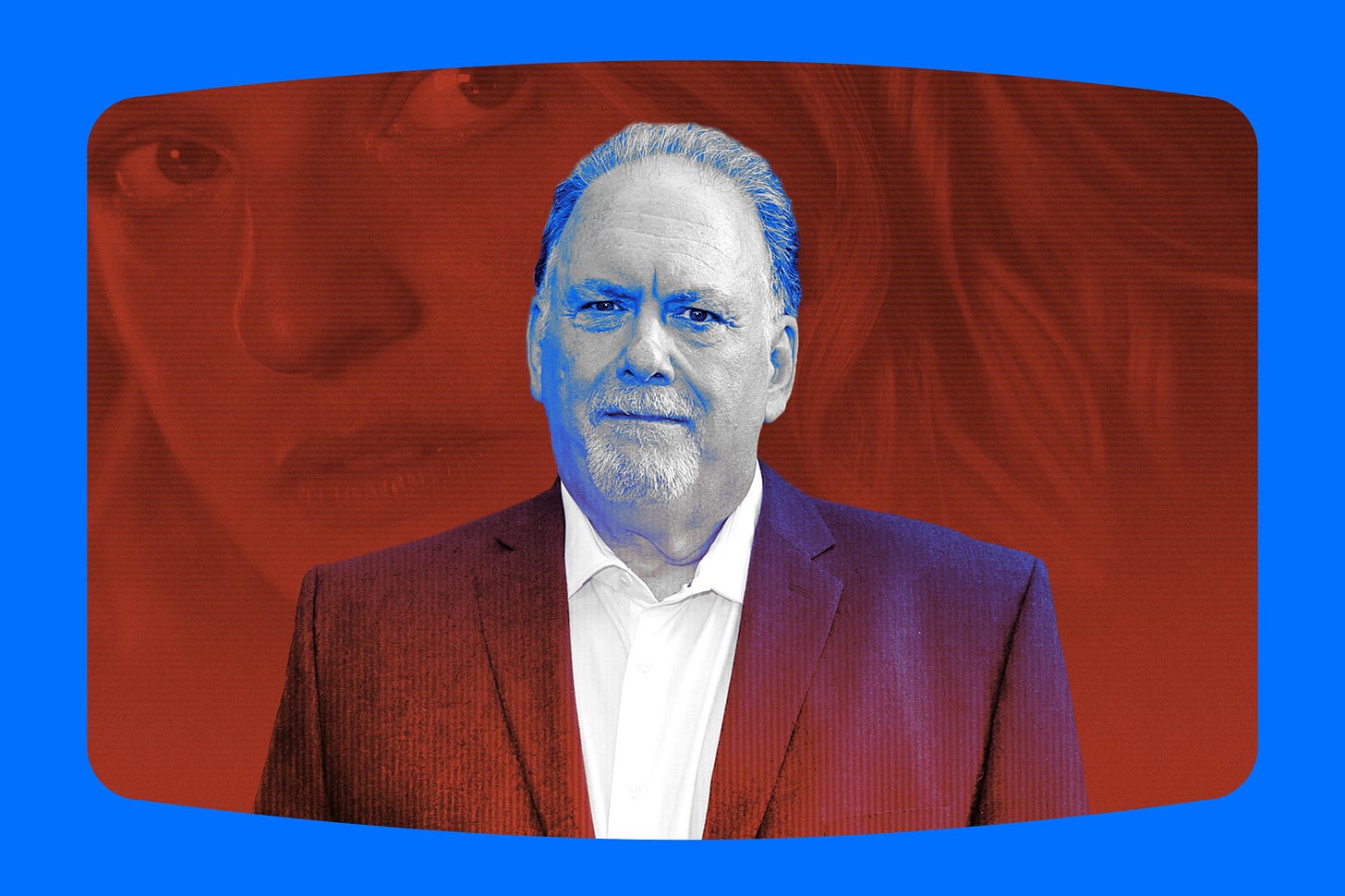‘Handmaid’s Tale’ Screams Dystopia. But the Show Creator Won't Get Political
Anti-Trump protesters dress as characters from the Hulu series, but Bruce Miller is focused on sticking the landing of June’s story — and its next chapter

Lesley Goldberg reports from L.A. She wrote about the mess at Amazon TV and what’s next after exec Jennifer Salke’s exit; she also surveyed dozens of writers on how to improve TV development and rethink writers rooms. Reach her at lesley.goldberg@theankler.com
For Bruce Miller, overseeing The Handmaid’s Tale was the culmination of a lifelong dream.
The veteran showrunner, whose résumé includes stints on ER, Everwood, Medium and The 100, had wanted to tackle Margaret Atwood’s dystopian 1985 novel ever since he wrote a thesis paper about it during his tenure at Brown University. Miller’s longtime agent knew this was his dream project — a fact that helped him land the job after Hulu and producers MGM Television originally wanted to hire a woman to steer the Elisabeth Moss-led drama.
Hulu originally picked up Handmaid’s Tale with a straight-to-series order in April 2016, during the final year of the Obama administration. The show would wind up debuting during the first months of Donald Trump’s administration in 2017 and as the culture was eerily beginning to mirror themes Miller explored on screen.
The Handmaid’s Tale, which in 2017 became the first streaming show to win the Emmy for outstanding drama series (its second, third and fourth seasons also were nominated) returned April 8 with the first three episodes of its sixth and final season — this time months into Trump’s second presidential term and as his administration has been unraveling everything from DEI programs to the Department of Education.
The familiar scenario, Miller tells me, proves how timely the 1985 novel remains and how powerful the Handmaid’s Tale follow-up The Testaments — which is based on Atwood’s 2019 sequel and was formally ordered to series by Hulu last week — will be once it launches in the coming years.
“When [The Handmaid’s Tale] came out, it was the Moral Majority and Jerry Falwell, and it was an absolutely shocking and norm-breaking time in America,” Miller told me on April 6, the day before filming on The Testaments began. “So yes, it was always going to come at a time that I hoped would have the same perennial relevance that the book has, that it's enduring and endures beyond the daily and hopefully points to some things that we're going to be running against forever.”
Miller tells me what he hopes viewers will take away from the conclusion of The Handmaid’s Tale, which comes more than two years after the fifth season and sees Moss’ June continue her fight against the repressive and regressive Gilead. The final season, which features a bit more gallows humor, has earned a rare 100 percent rating among critics on Rotten Tomatoes. In our conversation, lightly edited and condensed here, the creator also reveals how he approached making this final season ahead of the 2024 election. While Miller makes a clear distinction between the creative process of telling June’s story and the impacts that story may have on the culture, he also shares:
What’s interesting and nerve-wracking about doing a political show
Why he refuses to be a prognosticator about American elections or culture
What it’s like to promote an inherently political show in a political climate like the one we’re in
The ongoing role of Margaret Atwood in the series and sequel
How he coped with feeling like “an interloper” on a show centered in a woman’s point of view
How The Testaments diverges from The Handmaid’s Tale, and the sequel’s tension between what’s beautiful and “hard horror”
His feelings about doing this kind of show with Disney and Hulu
The wrap gift he gave the cast and crew and what he kept from the set
This column is for paid subscribers only. Interested in a group sub for your team or company? Click here.
For full access and to continue reading all Ankler content, paid subscribers can click here.



